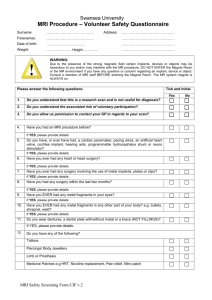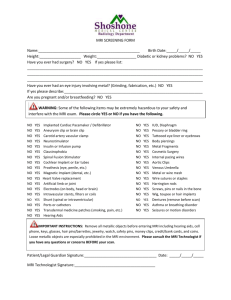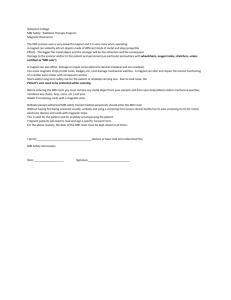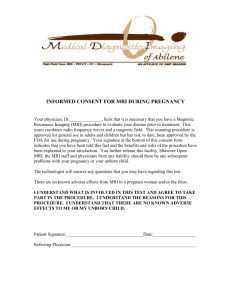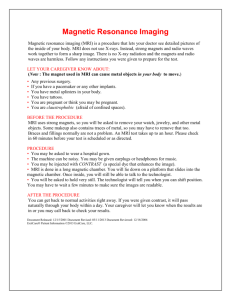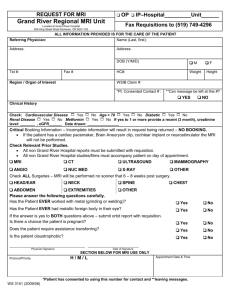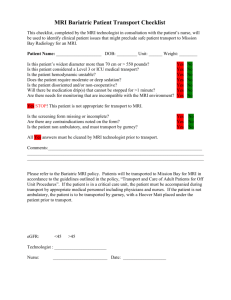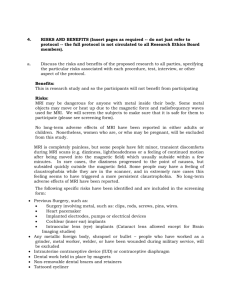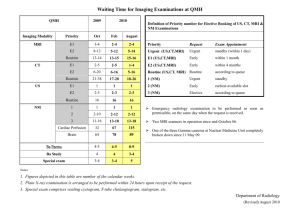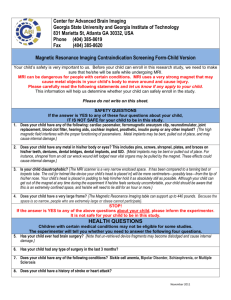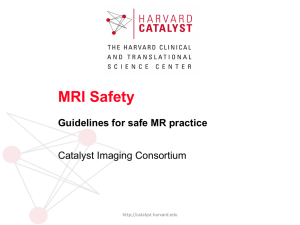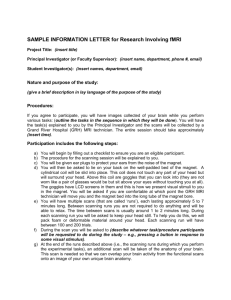fMRI/DTI addendum
advertisement
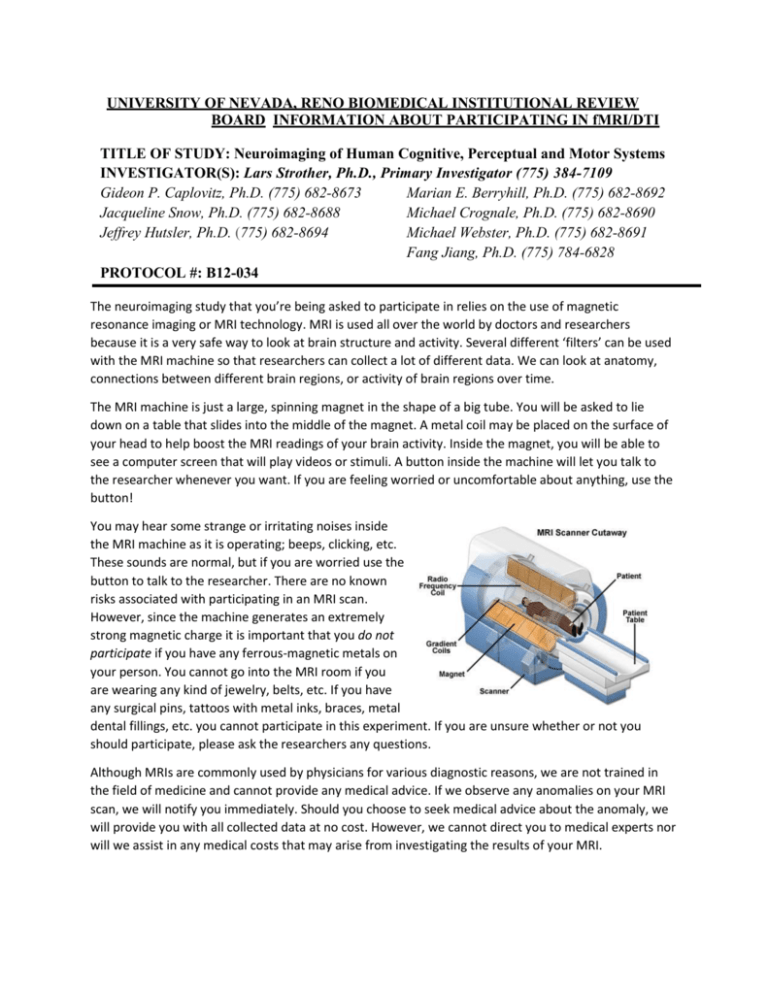
UNIVERSITY OF NEVADA, RENO BIOMEDICAL INSTITUTIONAL REVIEW BOARD INFORMATION ABOUT PARTICIPATING IN fMRI/DTI TITLE OF STUDY: Neuroimaging of Human Cognitive, Perceptual and Motor Systems INVESTIGATOR(S): Lars Strother, Ph.D., Primary Investigator (775) 384-7109 Gideon P. Caplovitz, Ph.D. (775) 682-8673 Marian E. Berryhill, Ph.D. (775) 682-8692 Jacqueline Snow, Ph.D. (775) 682-8688 Michael Crognale, Ph.D. (775) 682-8690 Jeffrey Hutsler, Ph.D. (775) 682-8694 Michael Webster, Ph.D. (775) 682-8691 Fang Jiang, Ph.D. (775) 784-6828 PROTOCOL #: B12-034 The neuroimaging study that you’re being asked to participate in relies on the use of magnetic resonance imaging or MRI technology. MRI is used all over the world by doctors and researchers because it is a very safe way to look at brain structure and activity. Several different ‘filters’ can be used with the MRI machine so that researchers can collect a lot of different data. We can look at anatomy, connections between different brain regions, or activity of brain regions over time. The MRI machine is just a large, spinning magnet in the shape of a big tube. You will be asked to lie down on a table that slides into the middle of the magnet. A metal coil may be placed on the surface of your head to help boost the MRI readings of your brain activity. Inside the magnet, you will be able to see a computer screen that will play videos or stimuli. A button inside the machine will let you talk to the researcher whenever you want. If you are feeling worried or uncomfortable about anything, use the button! You may hear some strange or irritating noises inside the MRI machine as it is operating; beeps, clicking, etc. These sounds are normal, but if you are worried use the button to talk to the researcher. There are no known risks associated with participating in an MRI scan. However, since the machine generates an extremely strong magnetic charge it is important that you do not participate if you have any ferrous-magnetic metals on your person. You cannot go into the MRI room if you are wearing any kind of jewelry, belts, etc. If you have any surgical pins, tattoos with metal inks, braces, metal dental fillings, etc. you cannot participate in this experiment. If you are unsure whether or not you should participate, please ask the researchers any questions. Although MRIs are commonly used by physicians for various diagnostic reasons, we are not trained in the field of medicine and cannot provide any medical advice. If we observe any anomalies on your MRI scan, we will notify you immediately. Should you choose to seek medical advice about the anomaly, we will provide you with all collected data at no cost. However, we cannot direct you to medical experts nor will we assist in any medical costs that may arise from investigating the results of your MRI.
